Boyle Heights Students’ Thoughts on H2GP Program
Students from the STEM Academy of Boyle Heights in Los Angles have spoken with Horizon Educational’s Social Media Specialist Julian about their experience of Horizon Hydrogen Grand Prix (H2GP) program and how it exposed them to green technology for the very first time. They highlighted the importance of teamwork, communication and perseverance in their journey to the H2GP World Final in Las Vegas.
Juan, Rene, and Jorge – along with their teacher Isreal Hernandez – also gave Horizon insight into the impact of the program on their community, personal growth and skill development.
Read the full interview below and visit h2grandprix.com to find out more about the program.
"I always tell students, it’s difficult to be something that you do not even know exists. So I think that the exposure that students are getting in this field, through this program, is extraordinary."
- Isreal Hernandez, Teacher, STEM Academy of Boyle Heights
So, team Boyle Heights, how do you feel going to the World Final in Las Vegas?
Juan: At least for me, it’s exciting because we get to go as a team. It’s really cool because we didn’t even think that we were able to go to the state finals, and now we’re going to the World Finals.
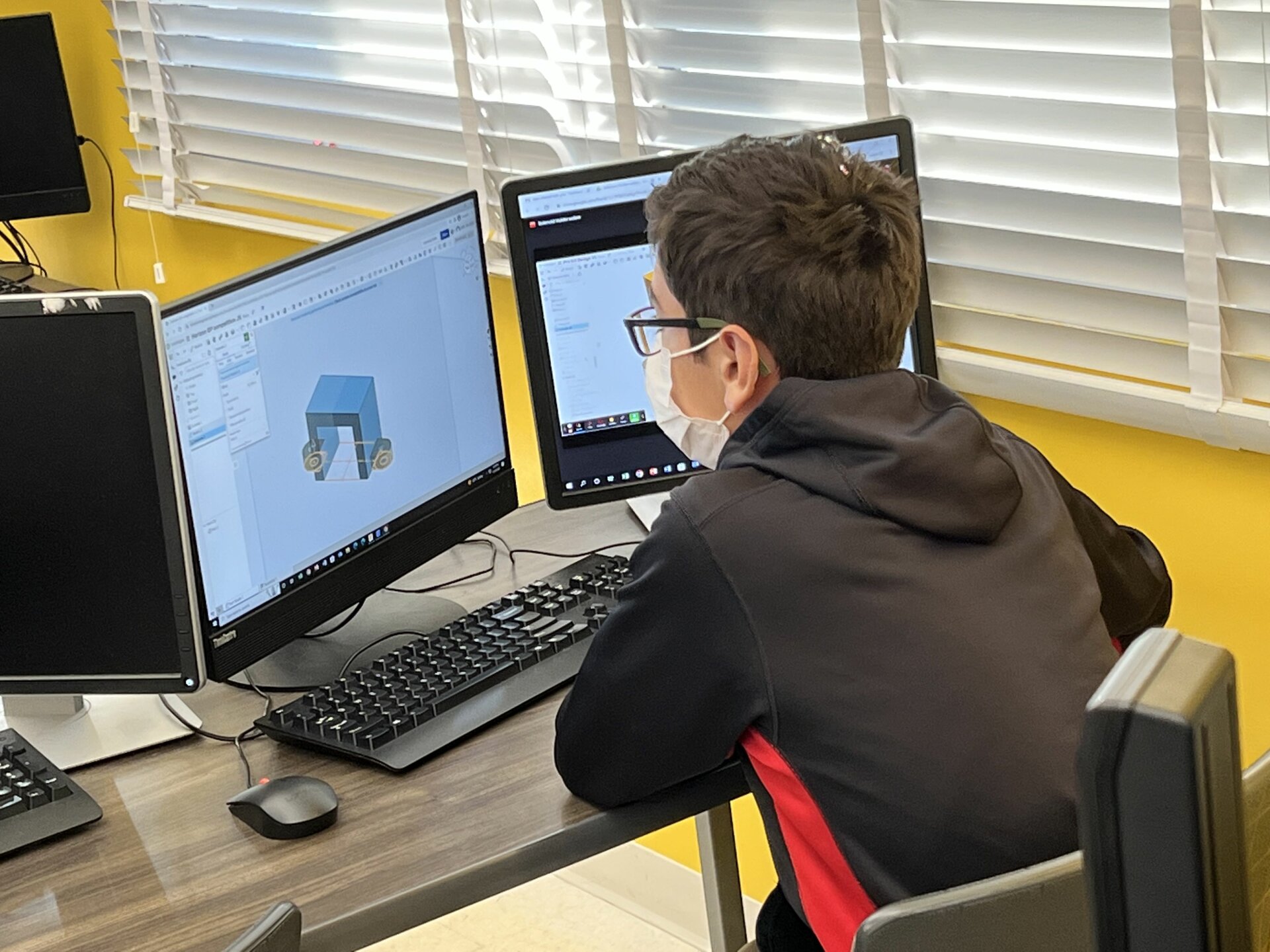
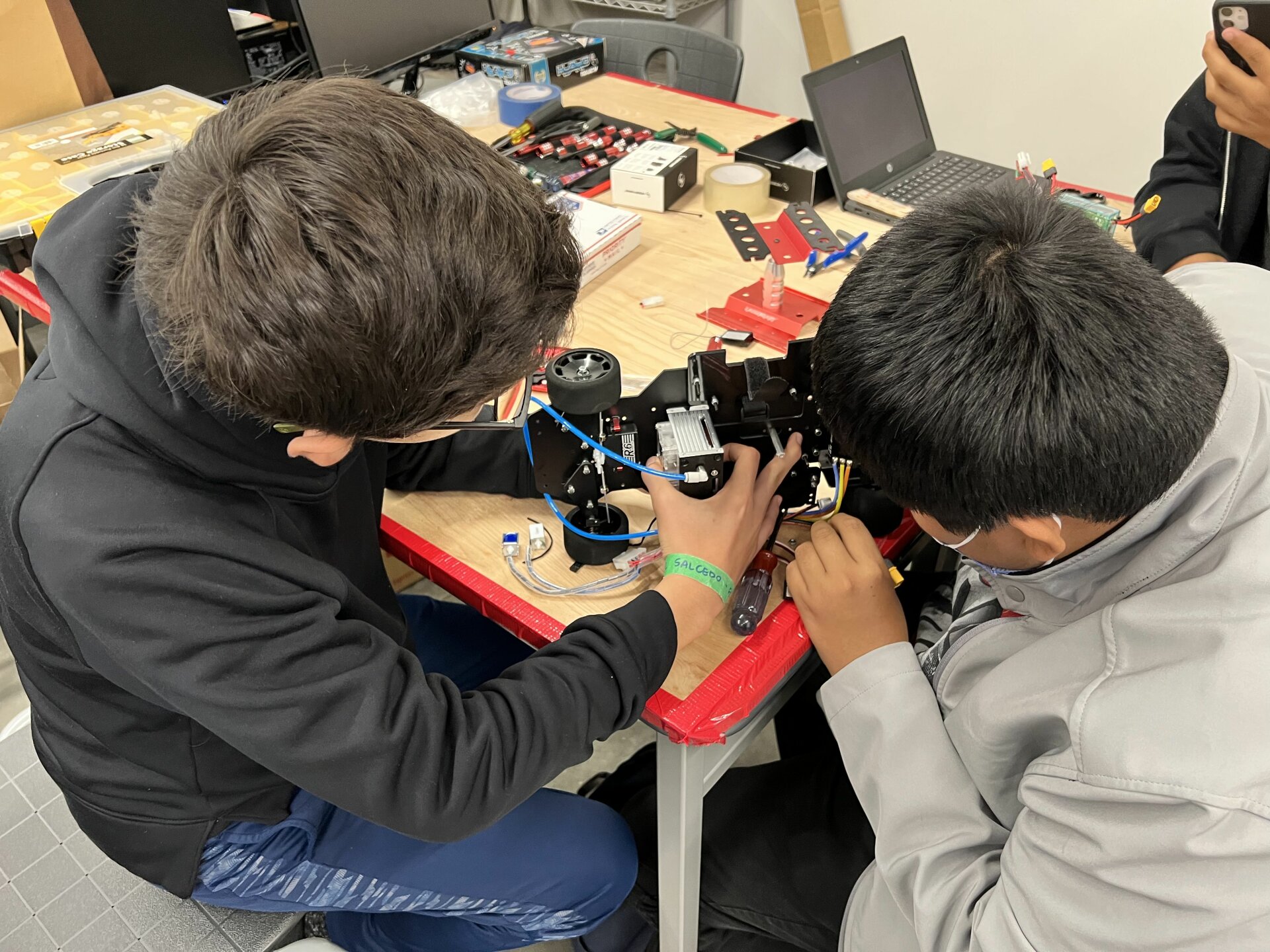
Absolutely, that must be extremely exciting.
Isreal: Me as a teacher, I’m excited because it’s the student's first year participating in the program, the students have had the opportunity to participate in other competitions, they’ve done robotics competitions, they’ve done drone competitions, they’ve also hosted robotics and drone competitions, but nothing like this. I love that students are being exposed to green technology. This is something that is definitely going to open up doors for them and possible careers. It’s something that is brand new, especially to our neighborhood, especially as we are an inner-city school. I always tell students, it’s difficult to be something that you do not even know exists. So I think that the exposure that students are getting in this field, through this program, is extraordinary. It is a lot of work, but I think in the end it’s exciting to see that they can expand their opportunities for employment.
Rene: For the progress we made so far, I didn’t even expect that we’d even make it to the state finals. Since we succeeded, it feels really great and incredible we made it this far.
Jorge: I feel a little excited for this competition, also a little nervous, but hopefully it goes well
That’s great, thanks everyone. I’m also interested in a little bit more about the story behind your team. How was it started and what bring you to the H2GP?
Isreal: Our school’s a LAUSD school, so that’s Los Angles Unified School District. There’s been a school that has been participating for awhile, STEAM Legacy High School, at the time there was a teacher by the name of Loreal. He met us and said he’d like other LAUSD schools to participate, particularly those who are underrepresented, and also for those students who are focusing on STEM.
What I also liked, was that it was something new. It was hydrogen fuel. That’s something that intrigued my mind and intrigued my student's minds. To think that they can design something that can run for so many hours with just one battery and the Hydrostiks, I think that’s amazing. The kids, they’re so surprised that they made it to the State Final. They tried their best, their cars had some hiccups now and then, but they persevered through it, and I think given the grade that they’re in, I think that they showed a lot of maturity because the other schools were very seasoned in the program, they also had upper-grade students, so I think that was a little bit intimidation factor for the students, I had to remind them, don’t worry about other teams, try your best and then we’ll see what you’ve learned. I think that this year was a learning process, we’re going through it for the first time, but I think that we also sparked some interest from other students as well. And also before the end of the school year, I already had other students approach me and say that they want to join the program next school year. So that’s good feedback to know that what we’re doing is also sparking interest in other students as well.
I would love to hear from your students about what you learned over the past year. Is there one takeaway that you’d like to share?
Juan: Well at least for me, one takeaway that has really impacted us, is teamwork and communication. In the beginning, we tried to talk with each other but we didn’t have a way to communicate, but in the end we started communicating more, more detailed sentences, and we were able to help each other. If one team member wasn’t able to do one thing, the other would, and we would go back and forth. If there was a problem two team members would fix that, and the other two would do something else.
That’s great. Anyone else have a lesson they learned?
Jorge: One of the main things that I learned is that I need to accept other people’s help and not purely work on it on my own. At the beginning, I was very much the one doing everything, not because they wouldn’t help but because I wouldn’t try to explain to them how to do everything. So I would be working on it on my own and then eventually I had to start showing them how to do certain things. And eventually I got to be a whole team effort by the end.
Did you guys have a hard time figuring out your roles? You know, most of the time some teams have a mechanical focus, did you guys realise that you have a strength that you brought to the team?
Juan: At the beginning of the year we already had our teams planned out, so we knew who was going to do what. Jorge, he’s a main engineer, he’s basically the leader, he’s our leader. We have another team member who’s really fast, he can fix the car really easily. Of course Rene is our driver.
"I’m so thankful for the H2GP program because without this program I have no idea how I would have exposed them to this type of technology."
- Isreal Hernandez, Teacher, STEM Academy of Boyle Heights/p>
I’m interested, if we could circle back for a moment, what was it about the H2GP that made you want to join the team?
Juan: The reason the program sparked my interest was that I was in the robotics team, it was really exciting to see all the people, the atmosphere was amazing. So I thought that this year with the H2GP, it was going to be even more exciting, and even more stressful, which is nice because of the adrenalin.
I’d love to hear as well about some of the challenges you faced the past year, anything that sticks out to you, something that was an especially difficult movement.
Juan: For me something that I am trying to overcome but I still cant is I’m way too relaxed at times, and in stressful situations that’s not a good thing. Some of my team members get mad because I'm way too relaxed. I think Jorge is the one who pushes me to be a better and more motivated person.
Any other challenges?
Juan: I feel like at the beginning at one of the first races, at one of the practice races, communication was one of the hardest things starting off with. We didn’t really know our places in the beginning, we had to get adjusted to that.
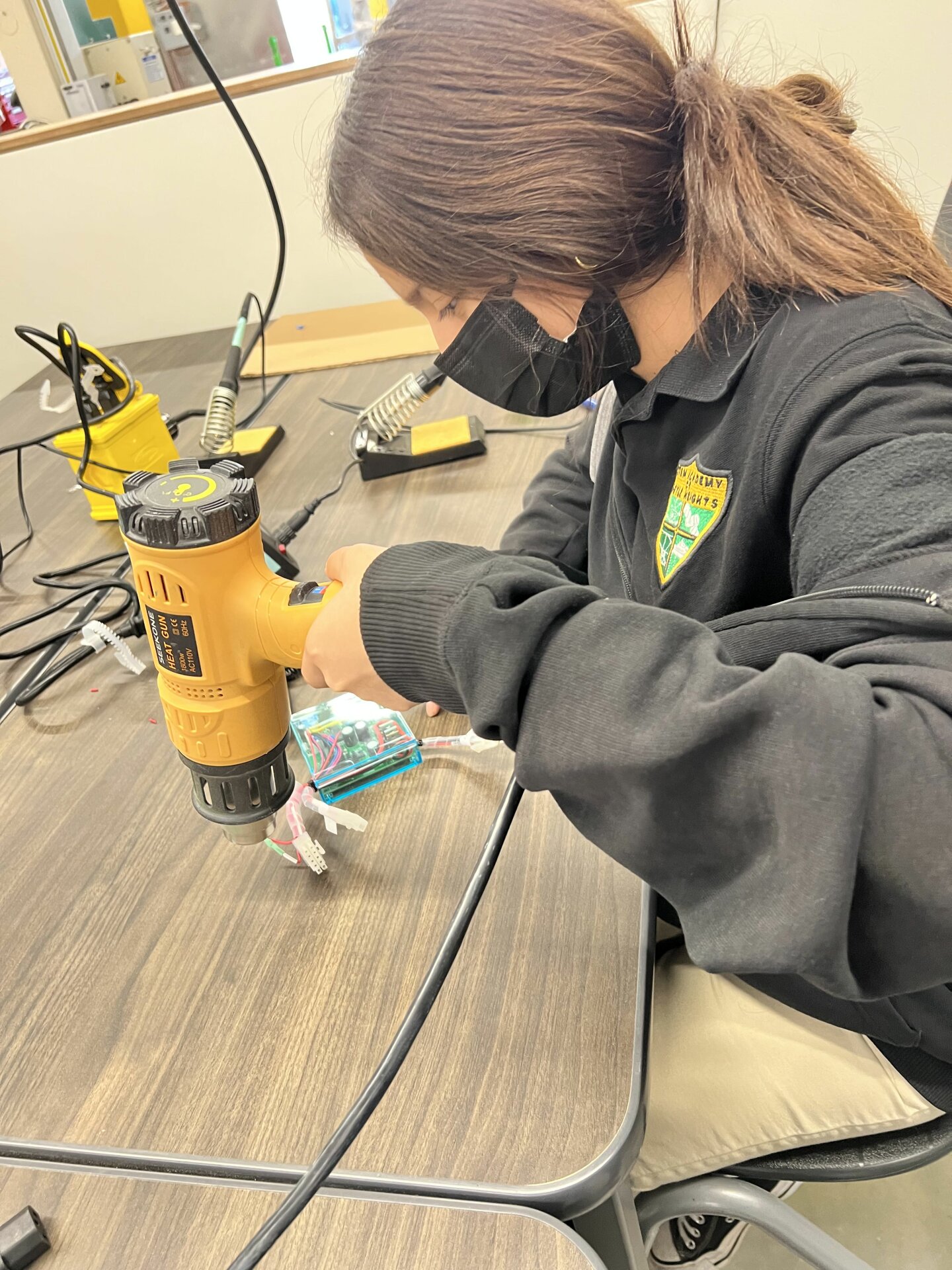
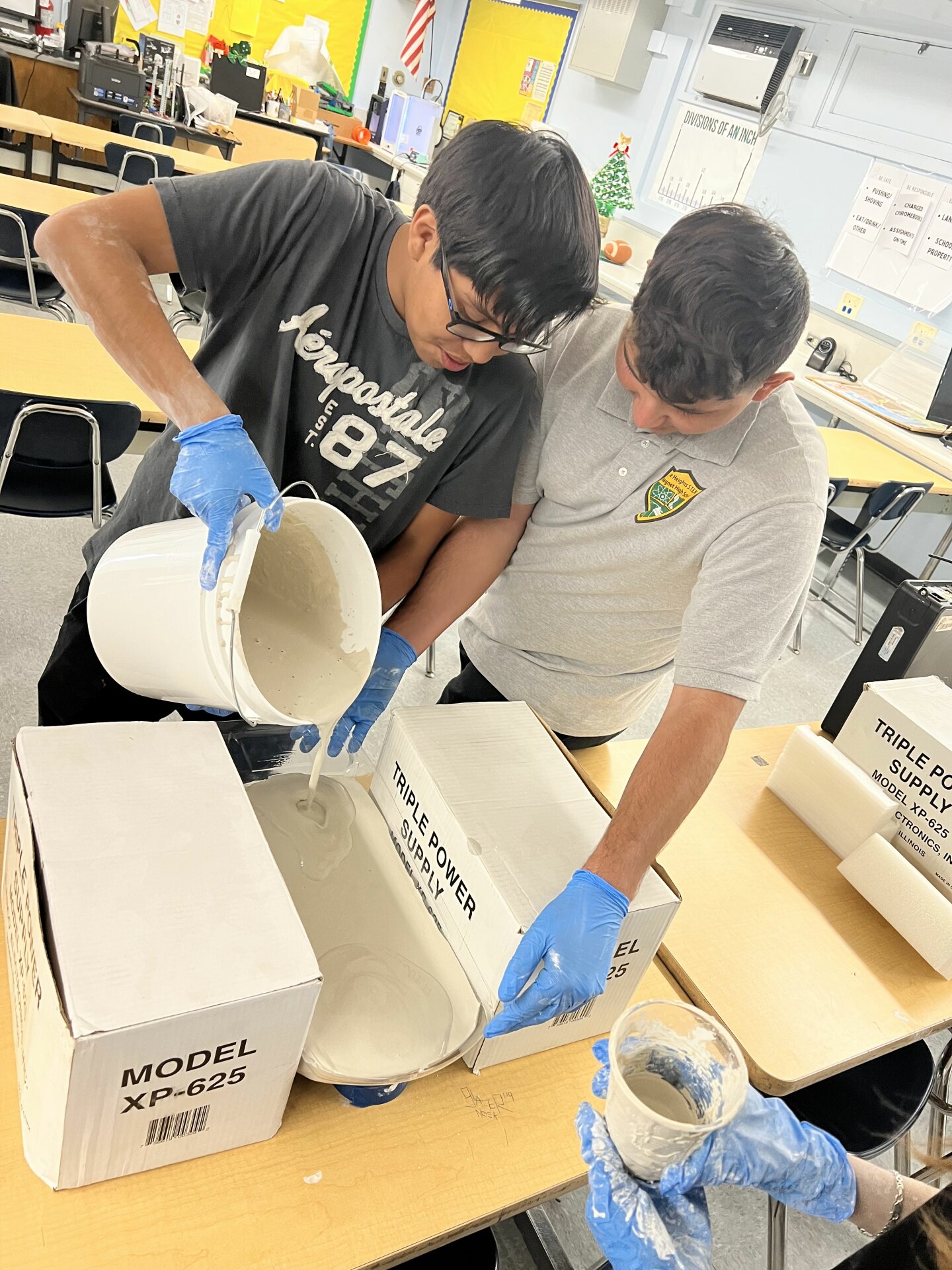
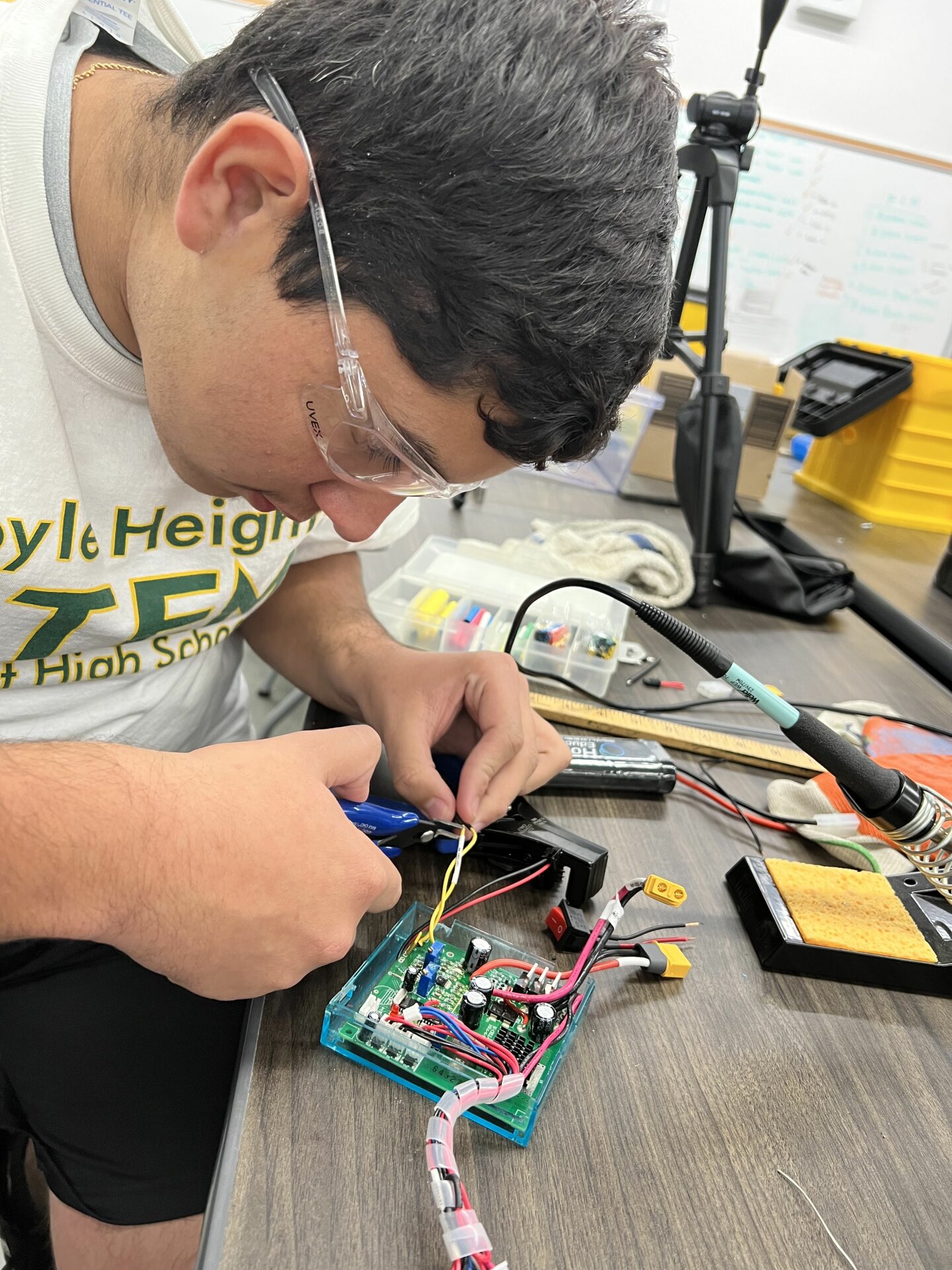
All of you are sharing lessons that you’re learning about how to communicate with each other and work as a team, which is so cool that this program is letting you do that in addition to all of the technical knowledge that you’re gaining.
Juan: I think in general, H2GP really humbled us, and I think it humbled some of my teammates too. Because when some of us tried to do one thing on our own, it wouldn’t work, so we had to do it as a group. It really changed us, it really changed us for the better.
Is there something that you think sets your team apart from other teams, something that is different from other H2GP teams?
Juan: I think that maybe, we communicate a lot, but we all think alike. Sometimes we don’t need words, we just look at each other, gives signs, and we’re finished. I feel like that’s a really nice thing, something that sets us apart.
How do you think this program has impacted your community?
Isreal: I think this program offers the ability to know there is a field within STEM that deals with hydrogen energy, renewable energy, and having our youth say “Maybe that’s a field I want to go into in the future”. We always hear kids say “I want to be an engineer”, that is so broad, right? So they usually stick to what they know or what they’ve heard of. But through this program, letting them know that there is this other field within STEM, has a huge impact in our community. Kids have heard of solar panels and that type of technology. But solar panels only work when the sun is out, and there needs to be a way to store that energy, and maybe hydrogen can be that way. I think getting kids excited about something that is completely new to them, and it generates electricity is that sparks a lot of the interest in our students.
I also just want to say, my students, they have surpassed their expectations, but also for me, my own expectations. I knew that they were going to do very well; they stay after school almost every day. They were practicing during the summer when we were on summer vacation. I think what sets these kids apart is their innocence. Sometimes they’re just going through the motions, going through the competition, but they haven’t realised how far they’ve gotten. They’re just going with the motions and keep executing. And I think that it’s very important for them to recognize their accomplishments, and I always tell them that the opportunities are there, they just need to take advantage of them. I’m so thankful for the H2GP program because without this program I have no idea how I would have exposed them to this type of technology.

